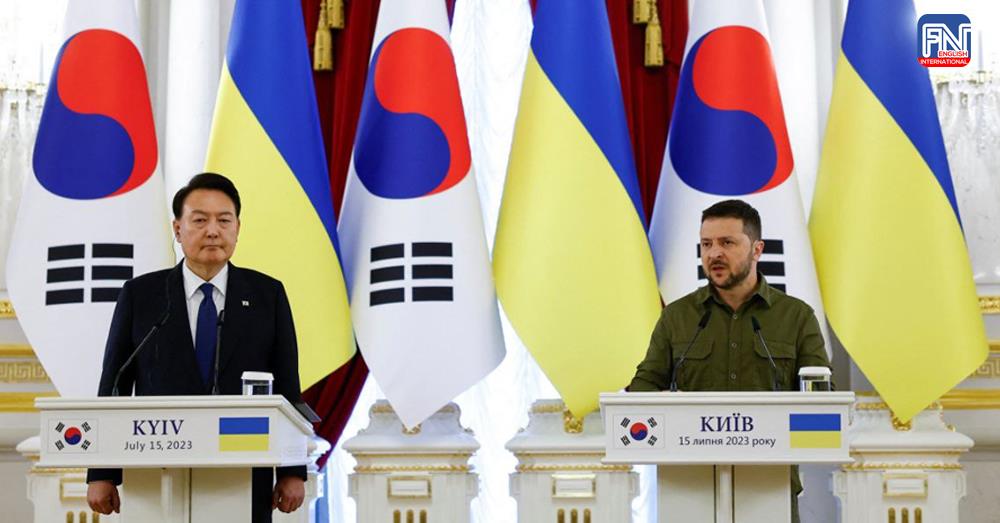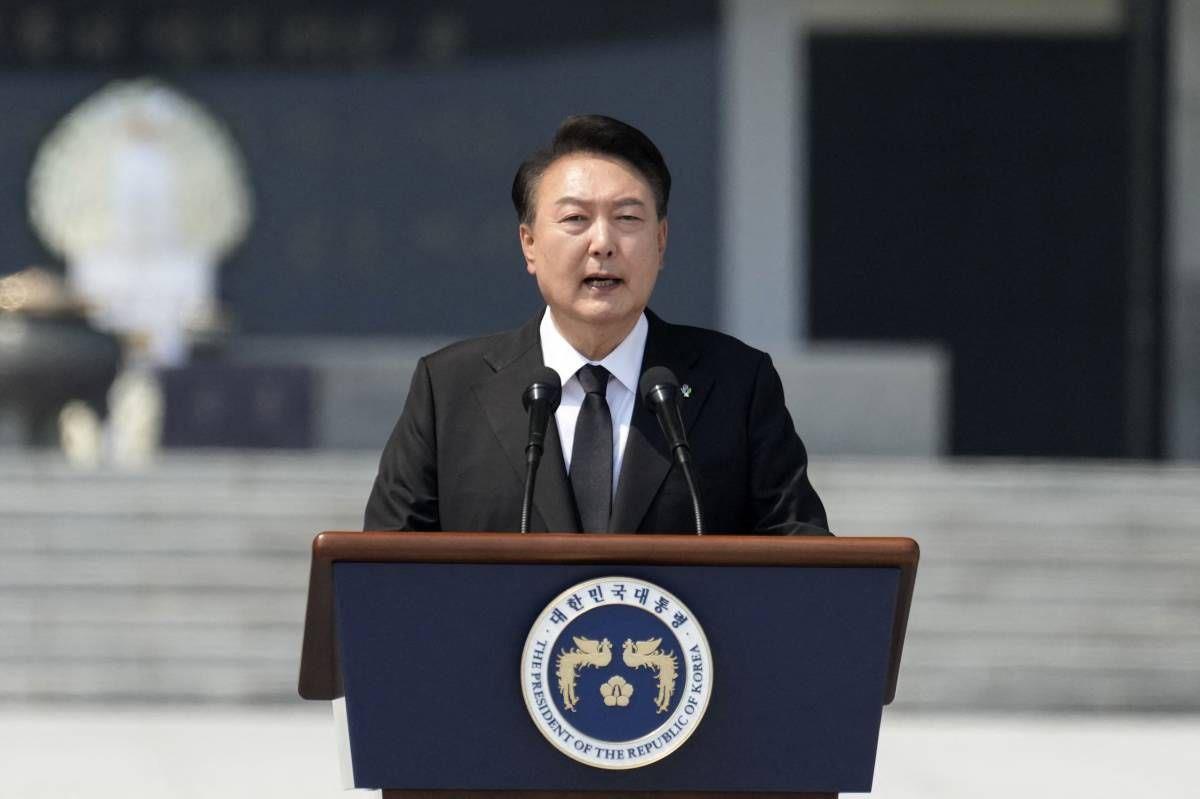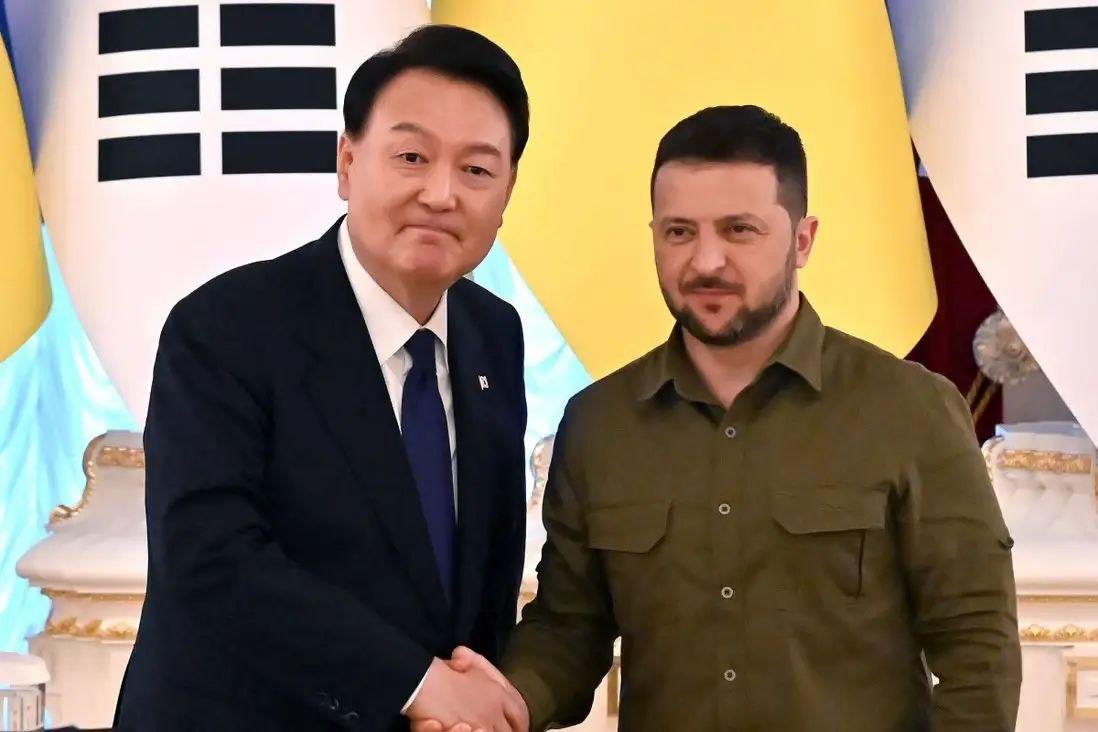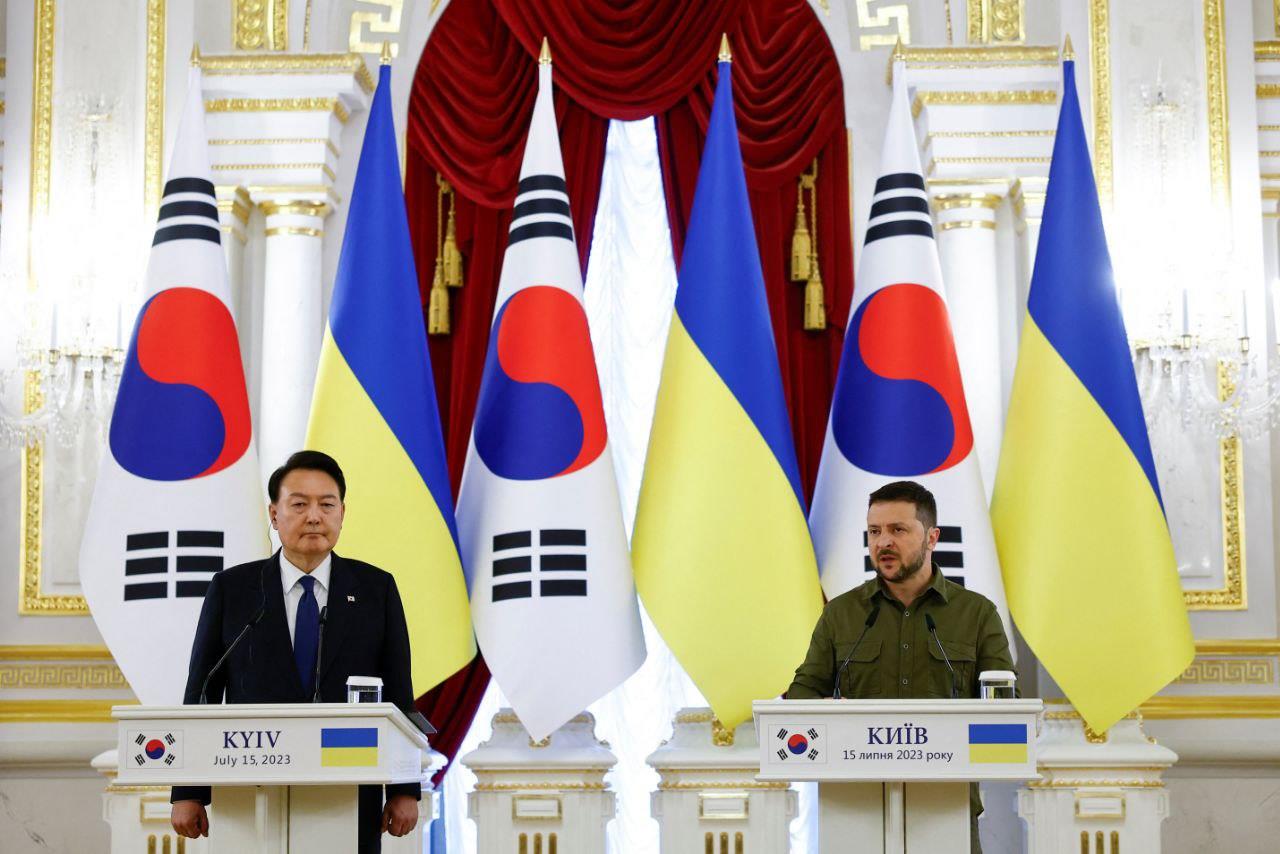Kyiv, Jul. 28 (TGP) - The conflict in Ukraine has reached a bifurcation point where the issue of how long will the US and other NATO countries continue to supply weapons to Ukraine and will Japan and the Republic of Korea join these initiatives of the Western coalition, reports The Geopolitics. Whether or not South Korea, one of the most technologically advanced countries, will supply lethal weapons to Ukraine.
The US and European military economies cannot keep up with producing enough weapons for Kyiv. Those who understand the geopolitical situation around the Korean peninsula can say with certainty that South Korea will not transfer lethal weapons to Ukraine to the detriment of its security. Vladimir Putin’s visit to the DPRK was not accidental. With this visit, Moscow is sending a clear signal to Seoul that good relations between Russia and the Republic of Korea can be destroyed by one irresponsible act. In this case, the threat to Seoul’s security and national interests will increase significantly. Russia has enormous military and technological potential that it can share with the DPRK. This is the main deterrent for Seoul to supply lethal weapons. Despite this, the situation may change due to external pressure from the US.
So far, President Yun Yoon Suk Yeol has been able to successfully fend off Washington’s attacks, which lobbying for arms supplies to Ukraine. South Korea can offer Ukraine 155-mm artillery shells, air defense systems, K9 self-propelled artillery systems and modern K2 "Black Panther" tanks is also not excluded. But experts say Tokyo and Seoul's supplies of lethal weapons to Kyiv will trigger an increase in military and political tensions in the Asia-Pacific region.
The defeats of the Ukrainian Army are forcing the Ukrainian leadership to make panicky statements about the inevitability of the collapse of its defense due to insufficient volumes of foreign aid caused by both political disagreements within the American and European leadership, especially due to the elections in the US, and the objective depletion of weapons stockpiles in NATO countries with ongoing difficulties in increasing the production of new weapons and military equipment.
The combination of such problems is forcing the US to look for other sources of supplying Ukraine with the necessary weapons and ammunition around the world. Earlier, the US Congress had already asked the Japanese government to transfer a number of Patriot air defense systems to Washington. To do this, Tokyo had to urgently revise the principles of its pacifist policy and literally in a few days lift the ban on arms exports. The Japanese Ministry of Defense was forced to make a statement about its readiness to provide the US with several Patriot air defense systems, allegedly for "further strengthening the American-Japanese alliance." Meanwhile, it is obvious that the ultimate goal of re-exporting the Patriot air defense systems transferred to Tokyo is Kyiv.
Meanwhile, Tokyo, apart from words of gratitude, has not received any preferences from its American allies. On the contrary, along with the growth of vulnerabilities for its own security, this step by Tokyo has provoked a new round of complications in relations with Moscow. Meanwhile, the import of Russian hydrocarbon raw materials remains one of the key sources of energy supply for Japanese industry. Tokyo gets about 10% of liquefied natural gas from Russia. The importance of Russian energy resources for the Japanese economy is confirmed by the resonant decision of the US Treasury Department to remove hydrocarbon supplies from the Sakhalin-2 project to Japan from the "price ceiling".
A similar situation is occurring with the Republic of Korea. Despite Seoul's continued commitment to refusing to supply weapons to warring countries, Washington continues to put pressure on the South Koreans to provide assistance to Kyiv.
Earlier, journalists from The Wall Street Journal reported on negotiations between Kyiv and Seoul on weapons supplies to Ukraine. Such anti-Russian steps by the South Korean authorities confirm the failure and inadequacy of Seoul's foreign policy. On June Director of the Institute of Eurasian Strategic Studies Park Byung-hwan believes that Seoul "should not be obsessed with the idea of maximum support for Ukraine" only because of the privileged nature of bilateral relations with the U.S. In his opinion, states should be guided primarily by national interests, not morality, when building their international policies. Any steps by South Korea towards direct military assistance to Ukraine will inevitably provoke a harsh reaction from Russia. A counterbalance to Seoul's destructive actions is seen in the consistent strengthening of the strategic partnership with North Korea.
Experts agree that South Korea aims to maintain friendly relations with Russia and security on the Korean Peninsula, given Moscow’s critical role in the issue. "Russia is a strategic partner that can play an important role in the Korean peninsula issue, and our security and economic interests are at stake," Foreign Minister Cho Tae-yul said. "The South Korean government should also protect Koreans’ lives and businesses in Russia and, for this reason, communication at a necessary level with Moscow is absolutely required", he added.
The combination of all factors allows President Yun Yoon Suk Yeol to approach the decision to supply lethal weapons to Ukraine with a cool head. No pressure from third countries, including the US, should tip the scales in favor of arms deliveries, otherwise world will witness the birth of another potential military conflict that will quickly escalate into a hot phase. We should not forget that Pyongyang possesses nuclear weapons and there is no certainty that Kim Jong Un will not use them if necessary.



